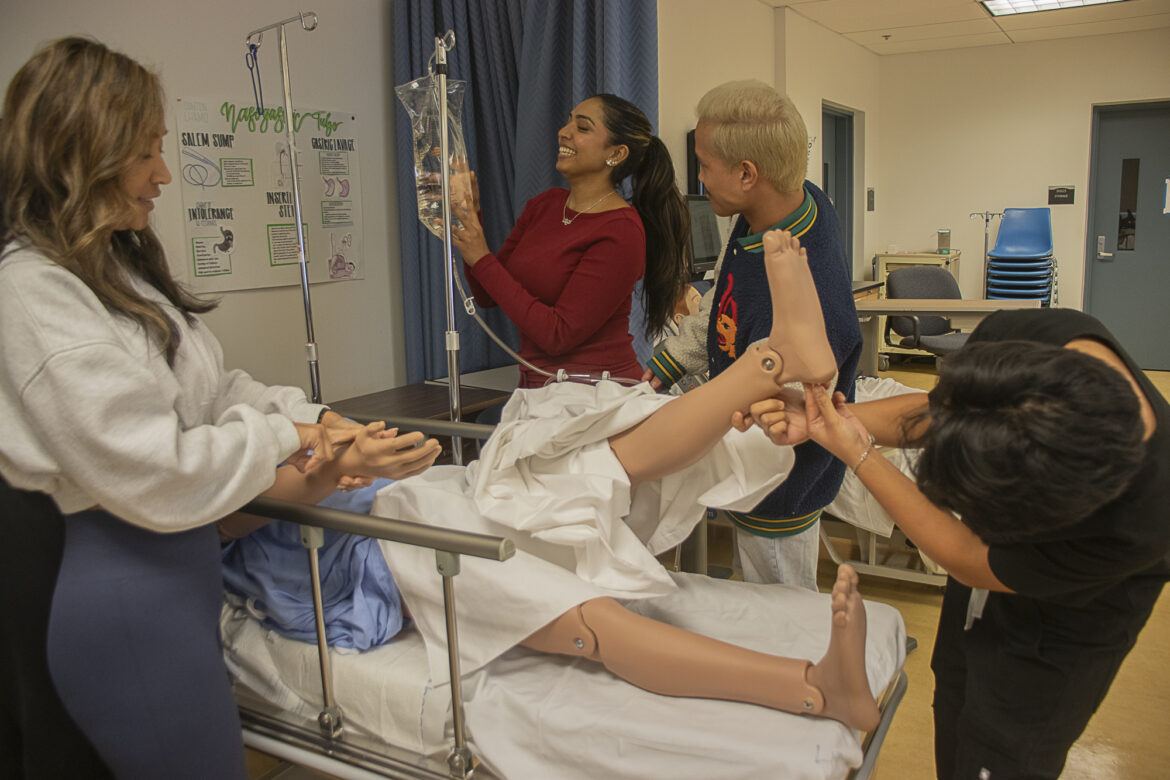For community college students pursuing a bachelor’s degree in nursing, the costs of four-year programs and the stress of applying to transfer can be prohibitive.
That’s why some Pierce College nursing students and administrators said they were disappointed with Gov. Gavin Newsom’s recent veto of a bill to allow selected California community colleges to offer nursing bachelor’s degrees to students.
In his veto message for SB 895, Newsom cited concerns that the bill would “inadvertently undermine [the] collaboration” between community colleges and California State Universities. Many CSUs already offer bachelor’s degrees in nursing, although CSU tuition is more expensive than community college tuition.
“I was disappointed that it didn’t go through,” Pierce President Ara Aguiar said. “I’m a real proponent of having baccalaureate programs at community colleges, especially for nursing, which is a highly impacted workforce.”
As the demand for nurses continues to grow, Pierce students are figuring out the next steps for them to receive their bachelor’s degree.
Jessica Martinez, a second-year-nursing student, shared her plan to pursue a bachelor’s degree to become a pediatric nurse at either UCLA or CSUN.
“Both have great nursing programs, but the costs are a concern for me,” Martinez said. “Community college is more affordable. The bill would’ve made it easier for not only myself but for other students to get their BSN.”
Martinez expressed how a bachelor’s degree can impact her career.
“I want to work in nursing, and getting my bachelor’s opens up many more doors for me and more job opportunities,” Martinez said.
Despite the setback, Martinez remains focused on her academic and career goals.
“I know it’s going to be challenging, but I’m committed to finding a way to make it work because working as a pediatric nurse is my dream,” Martinez said.
Second-year nursing student David Lee plans on transferring to CSUN to pursue a career as a registered nurse, but discussed how the experience might be challenging.
“I’m considering going to CSUN, even though it’ll likely be a tough financial stretch for me,” Lee said.
Lee expressed his feelings about the outcome of the bill being vetoed.
“I get why the bill was vetoed, but it’s still disappointing when there is a high demand for nurses to have a bachelor’s and students who will have challenging school expenses to cover in university, ” Lee said. “Making it easier to obtain a bachelor’s should be a priority, it would benefit many of us who want to work in healthcare.”
The veto of the bill has left Nayely Castillo, first-year-nursing student, feeling uncertain of where her academics may lead.
“I feel unsure about my future in academics and transferring to a university because of how high the cost can be,” Castillo said.
She expressed how SB 895 could have helped reduce financial worries for nursing students.
“This bill could have possibly helped reduce the overwhelming financial stress for nursing students who have a hard time paying for tuition and transportation to school,” Castillo said. “I do understand why it wasn’t passed, considering the concerns surrounding it and I hope there will be other solutions or future bills that can help students like me.”




